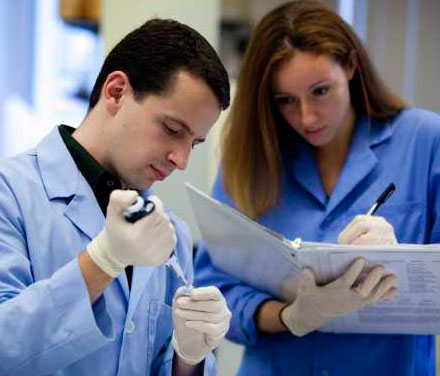 Postdoctoral fellows are a vital component of the JGPT toxicology program.
Postdoctoral fellows are a vital component of the JGPT toxicology program.
Research
The JGPT has developed comprehensive research and career training to launch scientists into an exciting career in toxicology. Postdocs pursue exciting and innovative research projects that capitalize on the state-of-the-art tools and equipment at Rutgers. Postdocs disseminate their research through multiple forums – annual seminars and symposia, regional and national meetings, and in highly regarded journals.
Individualized Career Development
Once fellows begin at Rutgers, a committee of three senior faculty members, including the mentor, are assembled to provide guidance and to assist with short- and long-term goal setting. The fellow meets with the committee every six months to discuss progress on the Individual Development Plan, plan career strategies, and to help in the development of fellowship applications for extramural funding.
Laboratory Management
JGPT postdocs are trained in the administrative aspects of managing a laboratory including formal lectures in laboratory fiscal management. Postdoctoral fellows are required to prepare budgets, write IACUC, IRB and chemical use protocols, as appropriate for their research. Postdoctoral fellows independently supervise research projects of undergraduate students and lead journal clubs under the guidance of their mentors.
Instruction
Postdocs develop their teaching skills by participating in graduate, undergraduate and high school course instruction. Fellows work with faculty members to develop lecture goals, content, and assessment metrics.
Support
In addition to the JGPT, the Office of Postdoctoral Affairs works to enhance the academic environment and educational experience of postdoctoral fellows. The Office coordinates an annual Research Symposium and professional development activities, and provides support services (assistance with loan deferment, business cards, tax advice, etc.).
